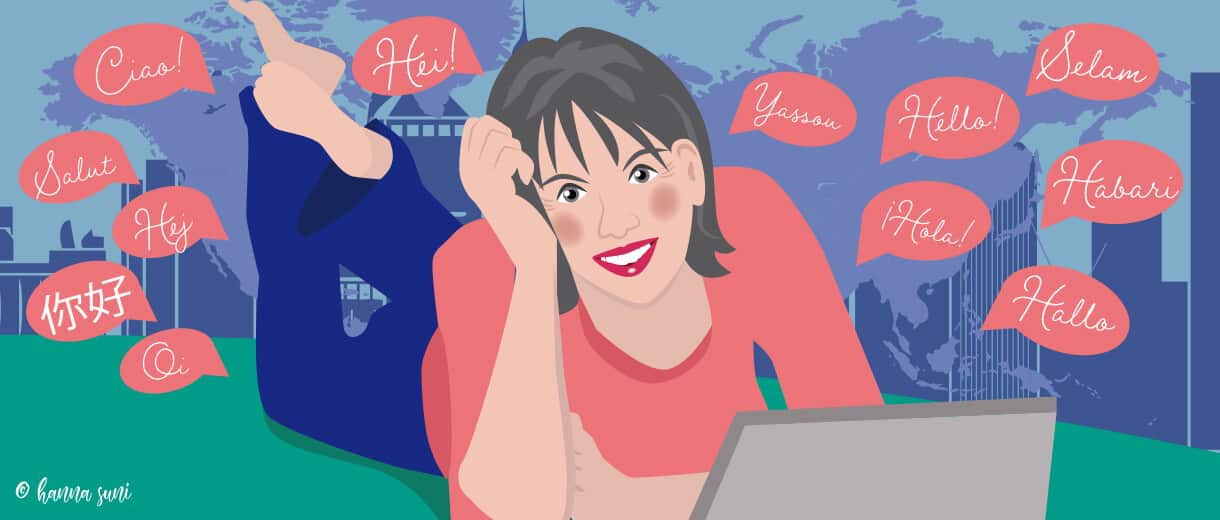The Benefits Of Learning Languages At Midlife
Have you ever dreamed of effortlessly conversing with locals in a charming Parisian café or exploring the vibrant streets of Tokyo with confidence? It’s never too late to turn these dreams into reality. As we enter midlife, learning a new language not only brings an exciting sense of adventure to our lives but also offers a plethora of remarkable benefits.
From stimulating cognitive functions and enhancing memory to boosting creativity and multicultural understanding, acquiring a new language opens up a world of possibilities while promoting brain health and overall well-being.
So, whether you’re considering learning French, Spanish, Mandarin, or any other language, join us on this journey as we explore the incredible benefits that await you when you unlock new horizons through language learning at midlife.
Can I Learn New Languages At Midlife?
Although it is commonly thought and scientifically proven that children learn new languages easier and faster than adults, there is no need for grown-ups to lose hope. We are most often better motivated and focused to study than youngsters and this, together with a wider vocabulary in our mother tongue, helps in the fast acquisition of words in a new language.
According to a study, adults are also better at learning grammar rules than children, thanks to more developed cognitive functions. On the other hand, older learners have more difficulty with pronunciation and accents: the phonemes – or sounds – of a language are naturally picked up by young children.
But our favourite motto, “it’s never too late to start” suits language learning, too, and there are as many benefits as there are methods to becoming a polyglot. Here are some of them.
Keep your brain trained
Learning a language increases brain flexibility and makes it easier to switch between different tasks constantly. In particular, speaking more than one language increases the number of neural pathways in the brain, allowing information to be processed through a greater variety of channels.
And guess what? The more languages you learn, the easier it becomes. “Metalinguistic awareness” means that your brain learns to identify the techniques of learning a language and break them down into a series of steps. After learning one foreign language, your brain retains the muscle memory and will understand how different languages are structured, through increased awareness of syntax, grammar and sentence structure.
Immerse yourself fully in another culture
While travelling, you get a completely different experience of a country and its culture, if you speak the local language. You will be able to form deeper relationships as locals will not only admire your abilities but respect your effort of having learned their language and feel flattered that you are fully embracing their culture. You will be able to understand proverbs, join in conversations and chat with natives who can share valuable insight regarding places worth visiting, books worth reading, sights worth seeing and foods and restaurants worth trying out. Being able to read the local newspapers and watch the news on TV will also allow you to pick up subtle nuances and understand the traditions of the place you are visiting. You will no longer be just a tourist but will set deeper roots into a new culture, getting a more profound understanding of its history and art as well.
Watch movies and TV-series and read books in the original language
If the current pandemic leaves you stuck in your home country, remember that it only takes some imagination to travel with your mind. Watching a movie in the original language allows you to time-leap and is completely different from listening to dubbed films or TV series where the actor’s and actress’ lip-sync is often completely off. If you are a beginner, you can set the subtitles in your own language and get a few hours of valid exercise while enjoying a film. Big platforms such as Netflix boast wide catalogues to help users find material in the original language.
The same goes for literature. Often, when a language is translated into another one, the true meaning of the words is lost, because the target language does not have the same words, expressions and phrases as the source language. Reading a book in the original language and therefore understanding the truest meaning the author wanted to transmit is a one-of-a-kind experience. It will also change the way we view, understand and react to the piece of writing and its message.
Build new relationships
Learning a new language also helps you to build relationships across cultures. Many adults in intercultural marriages are motivated to learn the spouse’s mother tongue in order to be able to communicate with in-laws and other acquired relatives and friends. Having friends around the globe is an unparalleled richness that allows you to widen your horizons in a unique way. But what if you do not have existing international connections or friends?
A great way to learn and practise a new language is to get involved in an international community – says Olga Plyaskina, certified language and cross-cultural communications trainer.- In today’s global society it is easy to find clubs, associations and organizations where people from different countries, cultures and languages mix and mingle. Joining a multi-ethnical community and getting to know foreigners by conversing with them makes the acquisition of a new language much easier.
Enhance your CV
If you are thinking of making a career change or simply switching companies, language skills are always seen as a plus. Being fluent in many languages not only makes you appear diligent, dedicated and experienced but also shows your compassion, interest and openness towards the world. The ability to travel effortlessly and communicate with foreign clients, partners and other stakeholders is fundamental in many fields today.
See your own reality from a different perspective
As your language skills improve and your empathy and knowledge of other cultures increase, you also start forming a connection between them and your own language and culture. You gain a deeper understanding and appreciation of your reality and the unique qualities of your homeland, its language as well as its people and habits. “Learning new languages allows you to obtain a new lens or filter through which to observe the world, including your own environment and daily life”, says Plyaskina.
Learn a new language online
If you’ve always had the desire to learn French, Spanish or another language and would like to get started with the first steps, you can explore some valid online resources available for learning. Take a look at Duolingo, Babbel, Rosetta Stone or FluentU: each one of them offers personalized resources and learning paths based on the client’s background, level of knowledge, motivation and learning goals.
To unlock your French potential with online lessons, you can also consider Lingoda, a reputable platform that provides interactive language classes with experienced teachers.
It is also possible to do a language exchange and help another person in learning your mother tongue while exercising a new language. You can find the perfect partner to exchange lessons with using Tandem or Bilingua, both worldwide platforms uniting people that yearn to become multilingual. And keep in mind that learning a language is not just about vocabulary.
Rather than concentrating on learning single words, try using minimal, complete sentences from the very beginning. Start with simple conversation starters to introduce yourself and tell simple facts of your life – advices Plyaskina-. This will make the learning process more meaningful and allow you to start using your skills in conversation much sooner.
In the end, learning a foreign language, much like learning to play a musical instrument, does indeed appear to be a good way of exercising one’s brain, and keeping it healthy, throughout life. Start practising now!
Like this post? Sign up to our newsletter to get more articles like this delivered straight to your inbox.





